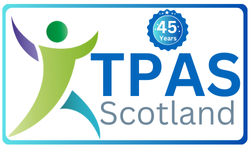Tackling digital exclusion
Ahead of her session at this year’s TPAS Scotland’s Housing Professionals’ Conference, Jillian Matthew, Senior Manager at Audit Scotland, discusses her organisation’s recent report on tackling digital exclusion.
In today’s digital age, access to technology is essential for participating fully in society. However, digital exclusion remains a significant barrier for many people and communities in Scotland. Our recent report on Tackling Digital Exclusion looked at how well public bodies understand and are tackling digital exclusion. We took a human rights-based approach to the audit, which included speaking to people with lived experience to inform our audit work. This gave us a rich insight into the issues people face and the impact it has on them.
What is digital exclusion and how does it affect people?
Digital exclusion is a complex issue and affects people in different ways. Challenges include affordability of devices and connections, skills and confidence, fear and mistrust, difficulty in accessing online services, and being able to keep up to speed with the fast pace of changing technology. One in six adults in Scotland lack the digital skills necessary for everyday life, and 9% of households do not have an internet connection. Digital exclusion disproportionately affects people already facing disadvantage, including those living in poverty, older people, and disabled people.
The consequences of digital exclusion can be severe. People without digital access face significant challenges in accessing public services, participating in the digital economy, and maintaining social connections. This can lead to increased social isolation, reduced employment opportunities, and a lower quality of life. Online public services do not always consider the needs of people without digital access, which may put their rights at risk.
How well is the public sector tackling digital exclusion?
During the Covid-19 pandemic, the Scottish Government and councils took significant steps to address digital exclusion. The Connecting Scotland programme, launched in May 2020, provided digital devices, internet connectivity, and skills support to over 61,000 vulnerable households. This initiative, backed by a £50 million investment, was a lifeline for many, helping to combat isolation and improve digital skills.
However, national leadership on digital exclusion has since weakened. The momentum has slowed, and there is a lack of clear action plans and accountability. Financial pressures have led to reduced investment in tackling digital exclusion. There is a need for the Scottish Government to refresh its joint strategy with COSLA. There is evidence of good practice in some areas, and several councils are taking a place-based approach to tackling digital exclusion, but clearer national support is needed. Council digital services are not always easy to access, e.g., council housing adaptations, paying rent, and cost of living support and guidance, and can disadvantage vulnerable people.
What needs to happen to enable digital inclusion?
All public bodies have a responsibility for enabling digital inclusion in their programmes for reform. Strong leadership and collaboration across sectors and in local areas is needed to ensure no one is left behind. Public bodies must take a person-centred approach, understanding the diverse needs of their communities and involving people in service design. Service design tools are available but are not being used as widely and consistently as they could be, and robust equality impact assessments should be carried out before any new digital service is introduced. Digital services can improve access for many people, but they need to be easy to use and include non-digital options or support for people to access them. More could be done to promote affordable internet access.
TPAS Scotland’s Housing Professionals’ Conference is taking place on 28 and 29 October at Apex City Quay Hotel in Dundee. Jillian’s session is taking place on the first day of the event.
To book your place at the conference, please visit the events section of the TPAS Scotland website or contact enquiries@tpasscotland.org.uk
